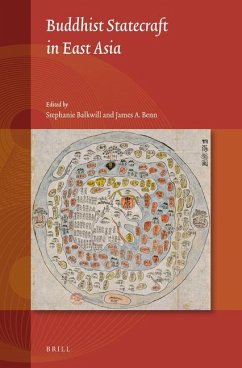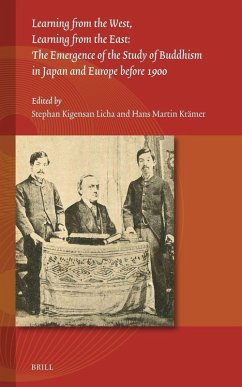
Imagining the Course of Life: Self-Transformation in a Shan Buddhist Community
Versandkostenfrei!
Versandfertig in über 4 Wochen
53,99 €
inkl. MwSt.

PAYBACK Punkte
27 °P sammeln!
Imagining the Course of Life offers a rich portrait of rural life in contemporary Southeast Asia and an accessible introduction to the complexities of Theravada Buddhism as it is actually lived and experienced. It is both an ethnography of indigenous views of human development and a theoretical consideration of how any ethnopsychology is embedded in society and culture. Drawing on long-term fieldwork in a Shan village in northern Thailand, Nancy Eberhardt illustrates how indigenous theories of the life course are connected to local constructions of self and personhood. In the process, she draw...
Imagining the Course of Life offers a rich portrait of rural life in contemporary Southeast Asia and an accessible introduction to the complexities of Theravada Buddhism as it is actually lived and experienced. It is both an ethnography of indigenous views of human development and a theoretical consideration of how any ethnopsychology is embedded in society and culture. Drawing on long-term fieldwork in a Shan village in northern Thailand, Nancy Eberhardt illustrates how indigenous theories of the life course are connected to local constructions of self and personhood. In the process, she draws our attention to contrasting models in the Euro-American tradition and invites us to reconsider how we think about the trajectory of a human life. Moving beyond the entrenched categories that can hamper our understanding of other views, Imagining the Course of Life demonstrates the real-life connections between the "religious" and the "psychological." Eberhardt shows how such beliefs and practices are used, sometimes strategically, in people's constructions of themselves, in their interpretations of others' behavior, and in their attempts at social positioning. Individual chapters explore Shan ideas about the overall course of human development, from infancy to old age and beyond, and show how these ideas inform people's understanding of personhood and maturity, gender and social inequality, illness and well-being, emotions and mental health.












